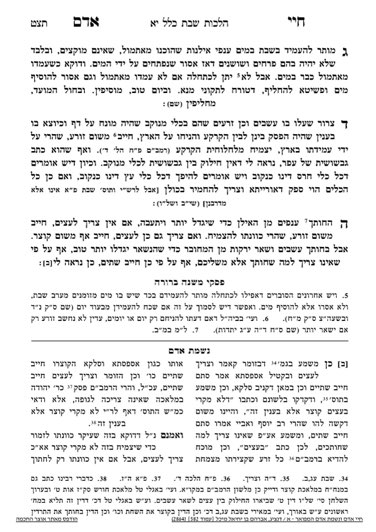Sponsorships for the upcoming Klalim, which discuss the 39 melachos of Shabbos, are available. Please contact Rabbi Reingold for more information at rabbireingold@gmail.com or 301.996.5910
We have completed Klal 11, and have a few points to clarify.
There is a food known as bean sprouts, which is a type of legume. It is placed in water, where it begins to sprout and eaten once sufficiently sprouted. The process of the bean sprouting is a form of germination, and the medium of water approximates soil and helps it grow. Placing the beans into water is assur and chayav for zoreiah, as we have learned previously. Thus, placing the beans into water on Shabbos is certainly assur.
The process of creating these bean sprouts includes changing the water every day for the first few days. Adding or changing the water of the bean sprouts would be a continuation of the melacha of zoreiah.
When the bean sprouts are ready, they are removed from the water and eaten. Removing the bean sprouts from the water on Shabbos constitutes the melacha of kotzair. When we learn kotzair, we will learn that if one has vegetables sitting in a bin that have begun to sprout, one can remove them and use them on Shabbos, because the bin is not a medium for growth, so they are not considered attached in any way to the bin such that removing them would constitute kotzair. However, over here, the water is a growth medium, so removing them from the water would be considered kotzair.
If one drains the water before Shabbos, or removes the sprouts from the water before Shabbos, arguably, it is no longer kotzair to use the sprouts. However, the moisture within the plants will allow for the beans to continue to grow even after they are removed. If so, cutting up or eating the sprouts effectively kills them, so maybe those actions should be considered kotzair.
Rabbi Ribiat, in his sefer on hilchos Shabbos, points out in his footnotes that it is clearly not kotzair. Kotzair is defined as uprooting something from its source; eating or cutting something does not uproot it from any source. Similarly, as the water on the plant is not the equivalent of a growth medium, so it does not remove it from its source. Removing the excess liquid, only inhibits further growth, and does not remove it from a source, hence it is not kotair either.
Putting vegetables into a bag in order to help them ripen is not an issue of zoreiah, since it is not done for the purpose of leading towards planting.
Summary
- Regarding bean sprouts, placing the beans into water or changing the water would constitute the issur of zorieah on Shabbos.
- Removing the sprouts from the water when they are ready would constitute the melacha of kotzair.
- If the sprouts are removed from water before Shabbos, cutting, drying or eating them is not an issue of kotzair, since kotzair is defined as removing a plant from its source, and in these cases, the plant has already been removed from its source previously.



